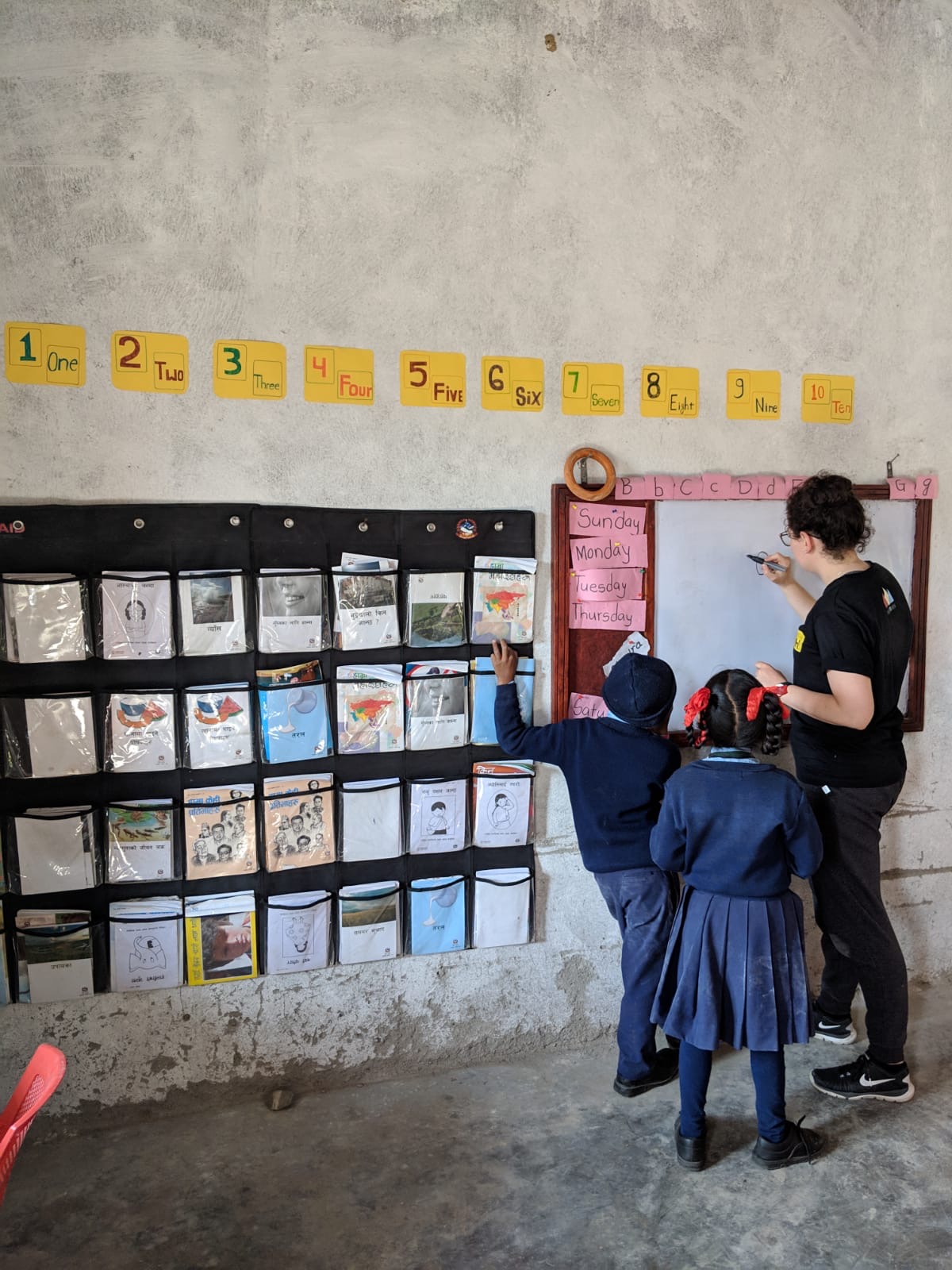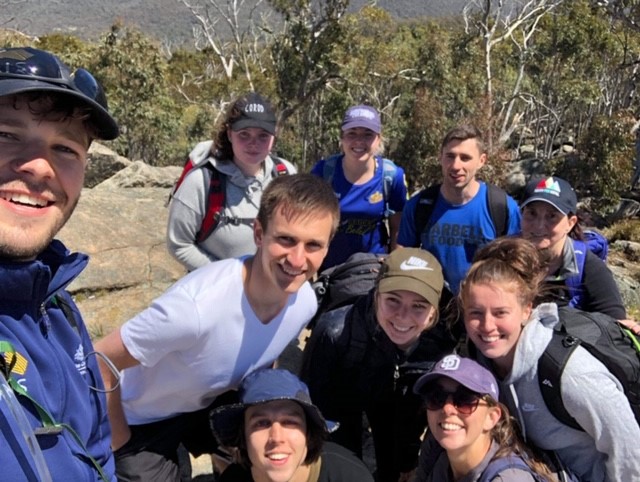Suzanne Lazaroo
14 November 2019: For the next three years, University of Canberra students on Faculty of Health-led trips to Nepal will focus their efforts on improving facilities, resources and educational experiences at the Shree Barah Guthi School in Syangja District, Gandaki Pradesh.
This is part of an ongoing, sustainable Community Rebuild Program in collaboration with the Canberra-based REACH for Nepal Foundation.
Located in the village of Chiruwa, the school has 32 students, with the oldest about 10 years old.
The school sustained considerable structural damage in the 2015 earthquake, with the water tank partially ruined. The student group’s main focus this time around will be getting the pre-school nursery room in good shape – cleaning and painting, designing a mural, creating posters for the room and setting up the space.
In addition, they’ll bring donations of books to encourage the children to read and arrange educational resource kits.

Cleaning the school and the amenities block is also on their agenda, as well as a hand hygiene program, building on last year’s success.
“A health outpost is being built near the school, and our students will be looking at helping out there in the future as well,” said Associate Professor Tanya Lawlis, who is heading the trip.
Set to leave for Nepal in late November, this year’s group is made up of students pursuing undergraduate courses in Human Nutrition, Public Health, Psychology, Health Science and Sports and Exercise.
“Due to the flexible nature of the program, I can adapt our outreach and educational activities to incorporate each student’s area of study,” said Professor Lawlis.
“This will mainly be a scoping trip, to explore what the students require from health and nutrition perspectives – for instance, have they eaten breakfast when they get to school? Our students will provide nutritional and health advice and education, and then we can build a long-term plan once we know which areas to focus on.”
This is particularly important in light of the influx of junk food into Nepal. Among other insights, this was revealed last year, on Professor Lawlis’ first faculty-led trip to Nepal.
That visit saw students working with a women’s community group in the Khora Ko Mukh Macchapucchare Rural Municipality, teaching local schoolchildren about hand hygiene and assisting in major renovations to a school’s amenities block.
They also visited hospitals, rural health outposts, Pokhara University and the National Innovation Centre, heritage-listed sites, and trekked within the Annapurna Circuit.
It was an opportunity for the group to not only expand their skills and knowledge, but to apply them in practical, real-life ways, and most importantly – to witness the impact of how they could effect change.

This year, the students will attend on-the-ground language training with Seven Women, an NGO dedicated to empowering women in Nepal.
“The students will be taught by Nepali women, adding a lot more value to their experience because they’ll be able to use the newly-acquired language skills straight away,” said Professor Lawlis.
“The students have been working very hard on the projects even before leaving for the trip, developing the educational resources, and formulating the questions for the scoping review,” said Professor Lawlis.
They’ve also been hiking at Mount Tennent, to build stamina for the trekking portion of the trip.
The University of Canberra group will also visit surrounding villages in Syangja, in order to see what support the ongoing program can provide for community health and wellbeing.
“Everything we do will be based on ongoing consultation and collaboration with the school and community,” said Professor Lawlis. “It’s very important to have their input and build a relationship with them.”
To read more about the students’ experiences on the Nepal trip in 2018, click here.


